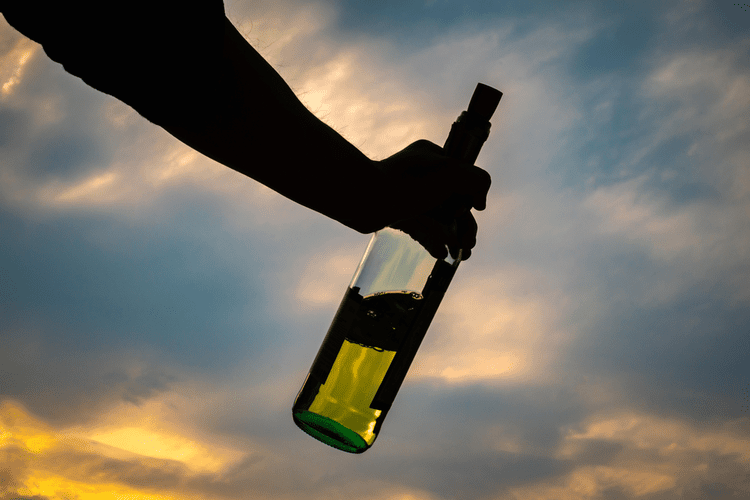The suggestion is to “take what you need and leave the rest,” by embracing what makes sense to you in early recovery and setting the rest aside for the time being. These programs are based on behavioral, cognitive, and spiritual principles and practices through which people can learn how to stay clean and sober one day at a time. Alcoholics Anonymous extends its services to the criminal justice system, holding meetings in prisons and providing support to individuals within probation services. This inclusivity ensures anyone seeking help access the program, regardless of their circumstances.
Developing Healthy Coping Strategies
Meetings are held daily or weekly, depending on the specific group, and generally last from 60 to 90 minutes. Anonymity is important in Alcoholics Anonymous because it helps create a https://ecosoberhouse.com/ safe, non-judgmental space where individuals share their experiences openly without fear of social stigma. It’s important to keep in mind that 12-step programs are spiritual, not religious.
What Are AA’S Promises?
- Offline or in-person meetings, often referred to as “brick and mortar” meetings, take place in physical locations, and some groups host hybrid meetings, enabling participants to attend either in person or virtually.
- Medical professionals use a set of criteria to evaluate symptoms and determine if your alcohol use is mild, moderate, or severe.
- Alcoholics Anonymous (AA) is a self-help organization that aims to assist individuals struggling with alcohol addiction in achieving and maintaining sobriety through mutual support and a structured 12-step program.
They are accessible in person, online, or by phone to foster connection and mutual support in the recovery process. AA does not discriminate based on socioeconomic status or personal history; the only criterion for joining is the sincere desire to overcome alcohol addiction. This inclusivity ensures that anyone struggling with alcohol misuse has access to support in a non-judgmental and welcoming environment. The history of Alcoholics Anonymous (AA) traces back to 1935 when Bill Wilson, a New York stockbroker, and Robert Smith, an Akron surgeon, met in Akron, Ohio.
What Are Some Alternative Treatments To Alcoholics Anonymous?
It’s best to avoid questioning the concept of a Higher Power or discussing plans to cut back rather than quit drinking. These topics can be controversial and could lead to uncomfortable interactions. If you have these thoughts, drug addiction treatment consider exploring them outside the meeting with a supportive friend or therapist. It doesn’t matter which road you take to recovery, and the decision is a personal one! Although there are clearly issues that the 12 Steps do not address clinically, there is also something to be said to looking towards to spirituality in recovery as a necessary piece of the puzzle of recovery. This does not necessarily meaning God, a Higher Power, religion or any other traditional aspect of spirituality but instead looking at spirituality as connectivity, relationships, love and purpose.
Preamble of Alcoholics Anonymous
() Engage in or support education, research, or professional treatment. Connect with our team for a private conversation and take the first step toward lasting change. While AA boasts a larger global presence and a longer history specifically for alcohol recovery, NA has a smaller international footprint compared to AA and continues to grow. The closing of meetings often involves aa alcoholic definition a moment of silence, followed by a variety of options, including a prayer, the reading of the Responsibility Statement, or other selected pieces of AA literature. While there may be other solutions to problem drinking, we know that the AA programme works for us and we have seen it work for every newcomer, almost without exception, who honestly and sincerely wanted to quit drinking.

Acknowledging Powerlessness Over Alcohol

The Twelfth Tradition states that anonymity is the spiritual foundation of all AA traditions, reminding members to place principles before personalities. Anonymity serves as a safeguard at the personal level, protecting all members from identification as alcoholics, and is especially important to newcomers. It also serves as a spiritual principle at the public level, stressing the equality of all members and unity in their common bond of recovery from alcoholism. Now, we’re certainly not saying there aren’t other ways to get sober. In fact, many find that some of the more science-based AA alternatives work better for them than the “spiritual but not religious” steps of AA.
The Big Book
AA meetings serve as a space where individuals discuss recovery from alcoholism, with flexibility in how meetings are conducted. Using simple language, this pamphlet offers general information on Alcoholics Anonymous, covering topics such as symptoms of alcoholism, the Twelve Steps (A.A.’s program of recovery), the function of A.A. We are a Fellowship of people who have lost the ability to control our drinking and have found ourselves in various kinds of trouble as a result of drinking. We attempt — most of us successfully — to create a satisfying way of life without alcohol. For this we find we need the help and support of other alcoholics in A.A. If you or someone you know is dealing with alcohol addiction, consider talking to a professional about it.
- Alcohol addiction is a pervasive issue affecting millions globally, with far-reaching impacts that extend beyond the individual to families and communities.
- Understanding Your Rights is essential for those seeking legal recourse to ensure a loved one receives necessary treatment.
- This allows individuals in recovery to learn from each other while offering support and encouragement as they work together towards a mutual goal.
- Additionally, many treatment centers, community centers, churches, and office buildings host AA meetings, and information on these is obtained by contacting local AA intergroups or service offices.
“What you hear here stays here.”
This seemingly benign and innocuous phrase of “Real Alcoholic” has set off a fire storm of debate on social media about who and who isn’t an alcoholic. To paraphrase one social media poster, he went as far as stating that A.A. Meetings were going downhill because they weren’t populated by “Real Alcoholics” anymore. But when I was in meetings and I heard stories about drinking consequences, I would tell myself that’s not me YET. I’d tell myself that if I kept drinking the consequences I’m hearing from others today could be me tomorrow. Since then, Alcoholics Anonymous has been around as a crucial support system for those struggling with alcohol dependency.
